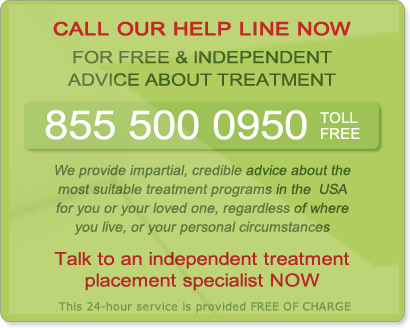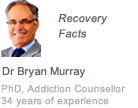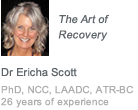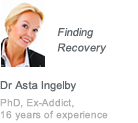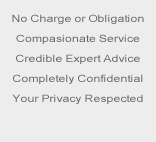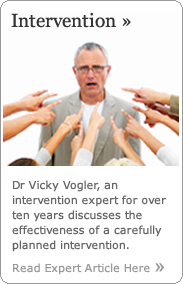The Signs of Addiction
The signs of addiction can be subtle, so subtle that you miss them or misunderstand what is happening:
He is your closest friend. Outwardly, he still looks just the way he always did. Well, perhaps he is a little more tired-looking than usual. He is yawning a lot, and he is slightly red-eyed. Maybe that is the reason why his moods have been a little more erratic lately than they have been before: one moment he’s ecstatically happy, the next unshakably depressed and sometimes he’s anxious for no obvious reason. But now you think of it, there have been other small changes; these days he seems to sweat more than you remember; he has developed a nagging cough and there’s a certain tremor to his hands that you had never noticed previously. But despite all of these things, he is still your closest friend. He is a fellow human being. What you may not realize is that, right now, your closest friend might need your help, faith and understanding more than he ever has before.
It is possible that your closest friend is suffering from an addiction. Even without knowing it you have witnessed the symptoms and signs; tell-tale little alterations in his behavior and appearance which, viewed in isolation, might not seem important but when added together begin to suggest that, for whatever personal reason, your closest friend has succumbed to a potentially harmful addiction.
Of course, it might not be your closest friend. It could be your partner, your brother or sister, a work colleague or any other member of your personal social circle. The important thing to remember is that no matter how you may have come to know them, if they are showing the signs of addiction they need help. They need your help and they need professional help.
What are the signs of addiction?
You know this person best. You are familiar with their moods and with their physical appearance. You may also know their habits and their personal interests. All of this knowledge is going to help you decide whether or not this person is suffering from an addiction.
We live in an age in which there is a wealth of easily-obtained yet addictive substances for those who feel that chemical stimulation or intoxication is an acceptable social pastime or the only recourse by which to resolve their problems. Thankfully, perhaps, many of the signs of addiction are common across a wide range of these substances.
The most commonly reported signs of addiction are:
- Increased lethargy, drowsiness or sleeping, perhaps partly attributable the recent onset of insomnia
- Dilation (enlargement or reduction in size) of the pupils
- Unpredictable mood swings, covering anything from rage to euphoria, hysteria to depression
- A tendency towards secrecy and furtive activity such as unexplained or quickly curtailed phone calls or the sudden urgent need to ‘go and meet someone’
- A loss of interest in everyday activities such as work, study or socializing
- An unexplained loss of, or increase in, weight
- An increased interest in, or focus upon, the substance to which the person is addicted
- Confusion or a sense of disorientation
- A loss of co-ordination
- Slurred speech
In addition to the above, the person in question may be experiencing symptoms of addiction that are commonly associated with the long term use of particular categories of drugs (for example ‘benzos’ (benzodiazepines, such as valium)).
If the person has such an addiction they may also complain or show signs of:
- Stomach cramps, diarrhea, nausea or vomiting
- Headaches
- Muscle or joint pain
- Shortness of breath
- Tremors or shivers
- Reddening of the eyes
- Loss of appetite
Someone you know shows signs of addiction. What now?
So you have observed the signs of addiction and concluded that someone you know is suffering from an addiction. Place yourself in their shoes. Do you consider them weak-willed? Have they suddenly become an inferior human being? Have they become a criminal or someone no longer worthy of your empathy or support?
Look at the bigger picture; you know that this person is so much more than the sum of the circumstances which have driven them to an addiction. No matter how the addiction may have manifested itself through their uncharacteristic behavior or appearance, they are still a person. Someone you care about – someone just like you. But unlike you, they are currently vulnerable and in need of help.
Do not be surprised if they are in denial about their dependence or addiction; human nature makes it difficult for any of us to acknowledge and accept unpleasant truths about ourselves, even when confronted with evidence, such as the signs of addiction.
Providing non-judgmental and unconditional understanding, support and empathy is the most valuable help you can offer. See the person, not the problem. Being given the appropriate opportunity to talk and be listened to may allow the sufferer of addiction to face up to and finally accept that they have a problem, and that they will benefit from professional help in order to detoxify and begin the challenging process of recovery.
Treating an addiction in the most effective way
Many of the professional methods by which an addiction is dealt with are procedural and focus simply upon identifying and counteracting the visible and obvious symptoms of addiction and withdrawal in order to cleanse the sufferer of their addiction, before referring them for counseling to assist further rehabilitation and reintroduction to a normal life. Whilst this approach is undoubtedly successful for some, it may not fully address every individual aspect that originally contributed to a sufferer’s addiction.
A holistic approach to the treatment of addiction can help to identify and address hidden underlying contributors to the problem, giving a greater knowledge and understanding of the circumstances, influences and pressures both internal and external, which lead to the addiction. Armed with this totality of understanding the recovering addiction sufferer is better equipped to move forward with recovery, able to recognize and deal with the potential hazards that, if ignored, could lead to a relapse.


